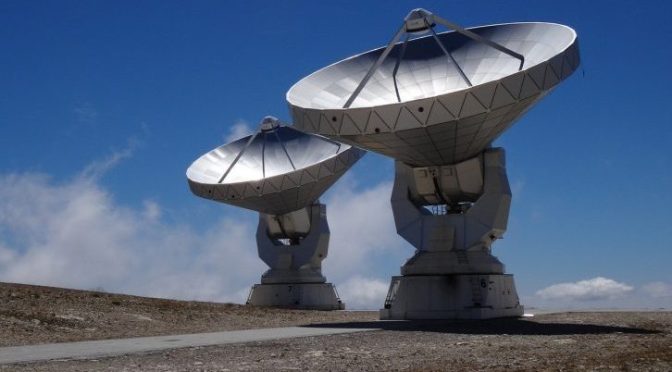First, a news story – and then we’ll see how the accelerating universe relates to the existence of God.
Excerpt:
Three astrophysicists who discovered that the universe’s expansion is accelerating rather than decelerating, as had been expected, win the Nobel Prize in physics.
Adam Riess was sure he’d spotted a blatant error in his results. It was 1997, and the young post-doc’s measurements of distant, exploding stars implied that the universe was expanding at a faster and faster rate, instead of slowing down, as he had expected.
It wasn’t an error at all. Instead, what was at fault were some basic assumptions about the workings of the universe.
On Tuesday, the Johns Hopkins University astrophysicist received the Nobel Prize in physics for the revolutionary discovery and its implications, along with team leader Brian Schmidt of Australian National University and astrophysicist Saul Perlmutter of UC Berkeley and Lawrence Berkeley National Laboratory, who had reached the same conclusion independently.
At the time of their work, astrophysicists believed that the rate of expansion of the universe — set in motion by the Big Bang 13.7 billion years ago — would be slowing down as matter was pulled together by gravity. The goal at the time was to figure out how rapid the deceleration was.
What the two teams found instead was that the expansion of the universe was accelerating — an observation that could best be explained by the existence of a mysterious “dark energy” that pushes matter farther and farther apart.
Many scientists had thought that, just as the universe started with the Big Bang, it would end with a Big Crunch — with gravity pulling all the matter in the universe inward.
Does anyone remember that week that I wrote those posts about “Why I am not a… <insert some religion here>”? I explained why I was not all kinds of different religions and denominations, including Roman Catholicism, Calvinism, Hinduism, Judaism, Islam, etc. Everyone was offended and we fought about it. Ah, I remember it well.
Now let’s apply science to the Hindu religion and see if they go together, especially this new discovery about the expansion of the universe.
Why I am not a Hindu
- Hindu cosmology teaches that the universe cycles between creation and destruction, through infinite time.
- The closest cosmological model conforming to Hindu Scriptures is the eternally “oscillating” model of the universe.
- The “oscillating” model requires that the universe exist eternally into the past.
- But the evidence today shows the the universe, and time itself, had a beginning at the big bang.
- The “oscillating” model requires that the expansion of the universe reverse into a collapse, (= crunch).
- In 1998, the discovery of the year was that the universe would expand forever. There will be no crunch.
- Therefore, the oscillating model is disconfirmed by observations.
- The oscillating model also faces theoretical problems with the “bounce” mechanism.
So that’s one reason why I am not a Hindu. And now we have more scientific confirmation that there is no cycle of universes coming into being and going out of being.
The absolute origin of the universe out of nothing is also incompatible with Buddhism and Mormonism and maybe other religions. They also require an eternally existing universe.
And modern cosmology disagrees with atheism, too
I think it’s important for all of you to be familiar with the scientific evidence for the Big Bang. It will help you with your cosmological argument, and it will help you to refute many, many other religions that require eternal universes, including atheism.
I wrote about how the Big Bang cosmology falsifies atheism before.
Excerpt:
According to the Secular Humanist Manifesto, atheism is committed to an eternally existing universe, (See the first item: “Religious humanists regard the universe as self-existing and not created.”). If something non-material brought all existing matter into being, that would be a supernatural cause, and atheists deny that anything supernatural exists. The standard Big Bang theory requires that all the matter in the universe come into being out of nothing. The Big Bang has been confirmed by experimental evidence such as redshift measurements, light element abundances and the cosmic microwave background radiation. This falsifies eternal models of the universe, which are required by atheist Scriptures.
The experimental evidence that confirms the Big Bang creation out of nothing falsifies many worldviews. Those who care about evidence will have to choose some other religion that is compatible with what we know from science today.


I’d be interested in getting your take on Roger Penrose’ cyclic model of the universe. In his model, the cycles don’t require a Big Crunch, so it doesn’t appear to be incompatible with Hinduism, or at least not for the same reasons.
LikeLike